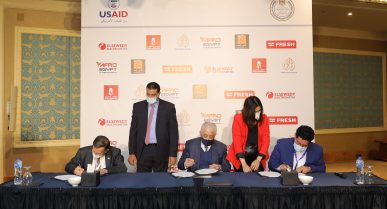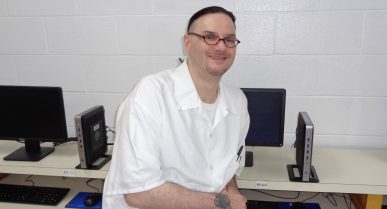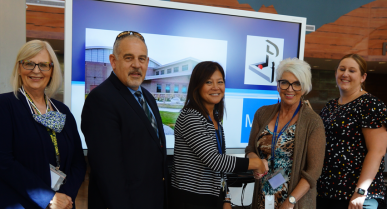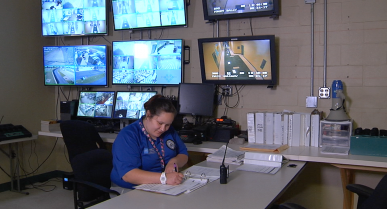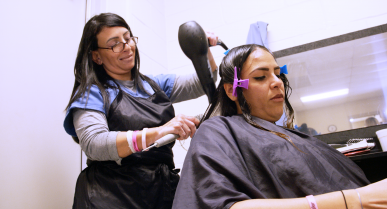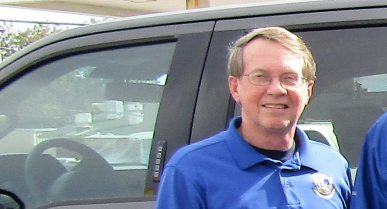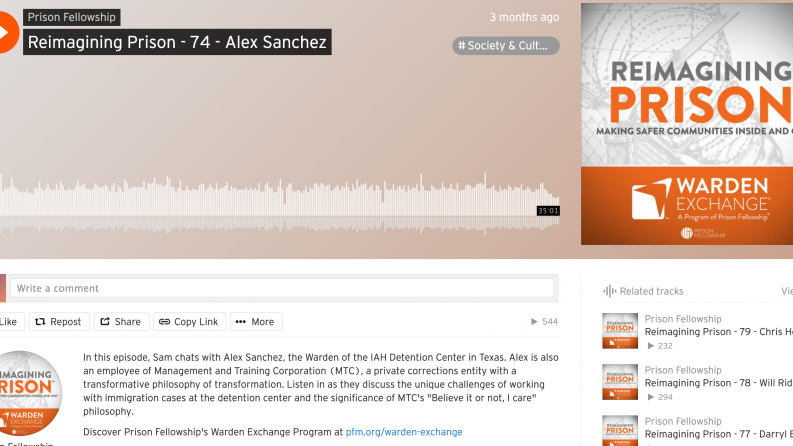
A Podcast Breaks Down MTC’s Difference in Detention
Facility Administrator Alex Sanchez of the IAH Detention Center in Livingston, TX, was recently featured on a podcast titled ‘Reimagining Prison’, hosted by Sam Dye. In the interview, Sam asked Sanchez about his philosophies of incarceration and about MTC’s approach serving the needs of men and women at Immigration & Customs Enforcement facilities. Click here to listen to the entire episode.
Here are a few excerpts:
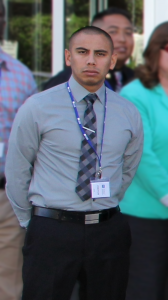
Sam Dye: Do you have any sense of a detainee’s expectation when they arrive at the facility and their reactions to the reality of that?
Alex Sanchez: When detainees come into an MTC facility, I think they see the compassion from my staff through the administration. We’re here to give the detainees as much help as we can, and change their lives; whether they stay inside the United States or if they go back to their home country. When they come into an MTC-operated facility, I think they’re surprised, I really do. They just appreciate what my staff does for them, whether it’s assistance with their case or just how my staff treats them.
SD: You’ve said the MTC BIONIC philosophy is Believe It or Not I Care. For someone who doesn’t work for MTC, maybe works for a correctional agency and has never heard of that, how would you describe what that looks like in the workplace?
AS: This year is MTC’s 40th Anniversary. We see it as 40 years of changing lives. The founder, Robert L. Marquardt, Dr. Bob, he touched thousands of people’s lives through his caring and cheerful personality, and we use that to pretty much sum up what the BIONIC philosophy is, Believe It or Not I Care. His son, Scott, and daughter, Jane, now continue that BIONIC philosophy today. Through them, they demonstrate that caring capacity for the staff and the detainee population. That’s why we go above and beyond with a program that’s required with any contract for any MTC facility. We provide proven programs, like behavior therapies, individual counseling, substance programs, vocational training, academic courses. Just programs to change the way people think about themselves, and to change their lives. I think that’s how I would sum up the BIONIC philosophy.
SD: My first exposure to MTC was many years ago, and I was in a cell block, and I was talking to some of the men there, and I asked them, ‘would you rather be at an MTC facility or would you rather be at another facility?’. They said, ‘oh, we’d much rather be at MTC’, which kind of surprised me. I said, ‘what’s the difference?’, and they said, ‘when count clears in the evening, and it’s time for lights out. The officer comes by and tells us goodnight. He said, ‘I’ve never been told goodnight by an officer in my life until I came to an MTC prison’.
AS: That’s exactly what the company is all about, we have a Culture of Caring. I’m really big on, ‘it starts with the administration’. When I’m in housing, I ask that detainee, ‘how are you doing today, have you talked to your kids, have you talked to your wife?’. And if they say no for whatever the reason may be, I see it as that’s my job, it’s my staff’s job, it’s our job to help them get in communication with either their family or their wife, their aunt, their uncle, whatever they might have. I stress that to my staff: Always take that extra step. There’s always room for improvement, everywhere. Whether it be in the kitchen, whether it be in the commissary, whether it be in the law library. Just getting their feedback on how we could improve operation. I really do feel, and I do believe in my heart, that our job is to try and help them feel at home as much as possible.
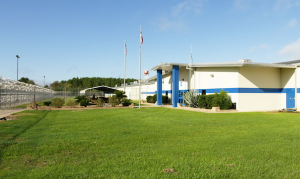
SD: Is there much of a challenge when orienting new staff to orient them to that philosophy? When you’re onboarding new staff is it a challenge at all? Do people come in with a different view? And how do you work with that?
AS: In my honest opinion, I think that is a challenge for most facilities across the United States, but the reason I really like MTC is because they like to be proactive. MTC has initiated at each of their facilities what is called the Culture of Caring. So that’s more on the staff side. From Day One, when they come in to get their interview, they have somebody there greeting the officer, telling him ‘good morning’, walking him in, because everyone’s nervous walking into a prison for the first time. So, we try to make them feel as comfortable as possible. And once they go through their interview, and once they do get hired, we bring them in; and from the warden all the way down to the last department head, they’ll go in there and introduce themselves, and at that point in time, that’s when the warden will tell them, ‘this is what MTC’s all about, this is what the BIONIC philosophy’s about, and this is the culture that we’re trying to implement here’.
SD: With immigration being such an issue these days, do you have a challenge with the community and how they may feel about the detainees?
AS: We have what we call a Community Relations Council meeting. That’s what we do once a quarter. We invite the community leaders to come in, and, at that time, is when we display on actually what we do; not just for the detainee population, but what we do for the community. As I mentioned, it’s MTC’s 40th anniversary. In the first quarter what we did is a literacy drive. We got other community agencies to donate books, and we gave them to the Boys and Girls Club. It creates that community communication, and in return the community leaders come to my Community Relation Councils, and when they come here, we show them what we do; the lives that we are changing, testimonials from offenders, detainees, including some from IAH. They get to see it firsthand how we’re changing people’s lives. It gives them a different look at what we do.
SD: How has the corrections industry changed since you started in the business twenty years ago?
AS: Now we want to establish that relationship with the detainee. You want to make your rounds, you want to pick his brain, ‘how are you doing today? Good morning, good afternoon, have you talked to your kids’. Just establishing that relationship and knowing your population. It opens up windows for you, they tell you exactly what’s on their mind, and if they feel there’s something that could improve at the facility, that’s their opportunity to let you know. It’s about helping the offender and the detainee.
SD: How would you answer someone who has issues with that? What are the advantages to this approach?
AS: It shows transparency between the facility, the employees, and the detainee population. Most inspections now, the team does various interviews of, not my staff as much, but most are of the detainee population. Detainees are honest, they’re not going to lie. If they got an issue, they’re going to say this facility doesn’t do this, this facility doesn’t do that, or the staff don’t do this, they’re real rude. But I’ve been blessed that most inspections that I’ve been through, the population says they appreciate the staff, and they appreciate how they’re respected, they’re treated like human beings, and they’re helped in whatever way we can.
Podcast link:
https://soundcloud.com/prisonfellowship/reimagining-prison-74-alex-sanchez
